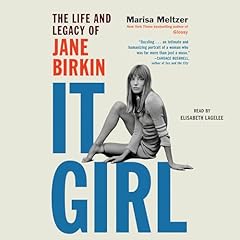
When the Going Was Good
An Editor's Adventures During the Last Golden Age of Magazines
No se pudo agregar al carrito
Solo puedes tener X títulos en el carrito para realizar el pago.
Add to Cart failed.
Por favor prueba de nuevo más tarde
Error al Agregar a Lista de Deseos.
Por favor prueba de nuevo más tarde
Error al eliminar de la lista de deseos.
Por favor prueba de nuevo más tarde
Error al añadir a tu biblioteca
Por favor intenta de nuevo
Error al seguir el podcast
Intenta nuevamente
Error al dejar de seguir el podcast
Intenta nuevamente
$0.00 por los primeros 30 días
POR TIEMPO LIMITADO
Obtén 3 meses por US$0.99 al mes
La oferta termina el 16 de diciembre de 2025 11:59pm PT.
 Exclusivo para miembros Prime: ¿Nuevo en Audible? Obtén 2 audiolibros gratis con tu prueba.
Exclusivo para miembros Prime: ¿Nuevo en Audible? Obtén 2 audiolibros gratis con tu prueba.
Solo $0.99 al mes durante los primeros 3 meses de Audible Premium Plus.
1 bestseller o nuevo lanzamiento al mes, tuyo para siempre.
Escucha todo lo que quieras de entre miles de audiolibros, podcasts y Originals incluidos.
Se renueva automáticamente por US$14.95 al mes después de 3 meses. Cancela en cualquier momento.
Elige 1 audiolibro al mes de nuestra inigualable colección.
Escucha todo lo que quieras de entre miles de audiolibros, Originals y podcasts incluidos.
Accede a ofertas y descuentos exclusivos.
Premium Plus se renueva automáticamente por $14.95 al mes después de 30 días. Cancela en cualquier momento.
Compra ahora por $22.50
-
Narrado por:
-
Graydon Carter
From the pages of Vanity Fair to the red carpets of Hollywood, editor Graydon Carter’s memoir revives the glamorous heyday of print magazines when they were at the vanguard of American culture
When Graydon Carter was offered the editorship of Vanity Fair in 1992, he knew he faced an uphill battle—how to make the esteemed and long-established magazine his own. Not only was he confronted with a staff that he perceived to be loyal to the previous regime, but he arrived only a few years after launching Spy magazine, which gloried in skewering the celebrated and powerful—the very people Vanity Fair venerated. With curiosity, fearlessness, and a love of recent history and glamour that would come to define his storied career in magazines, Carter succeeded in endearing himself to his editors, contributors, and readers, as well as those who would grace the pages of Vanity Fair. He went on to run the magazine with overwhelming success for the next two and a half decades.
Filled with colorful memories and intimate details, When the Going Was Good is Graydon Carter’s lively recounting of how he made his mark as one of the most talented editors in the business. Moving to New York from Canada, he worked at Time, Life, The New York Observer, and Spy, before catching the eye of Condé Nast chairman Si Newhouse, who pulled him in to run Vanity Fair. In Newhouse he found an unwavering champion, a loyal proprietor who gave Carter the editorial and financial freedom to thrive. Annie Leibovitz’s photographs would come to define the look of the magazine, as would the “New Establishment” and annual Hollywood issues. Carter further planted a flag in Los Angeles with the legendary Vanity Fair Oscar party.
With his inimitable voice and signature quip, he brings readers to lunches and dinners with the great and good of America, Britain, and Europe. He assembled one of the most formidable stables of writers and photographers under one roof, and here he re-creates in real time the steps he took to ensure Vanity Fair cemented its place as the epicenter of art, culture, business, and politics, even as digital media took hold. Charming, candid, and brimming with stories, When the Going Was Good perfectly captures the last golden age of print magazines from the inside out.
Los oyentes también disfrutaron:




















Las personas que vieron esto también vieron:


















Vanity Fair days
Se ha producido un error. Vuelve a intentarlo dentro de unos minutos.
Interesting particularly if you're in the business.
Se ha producido un error. Vuelve a intentarlo dentro de unos minutos.
𝗡𝗲𝘃𝗲𝗿 𝗮 𝗗𝘂𝗹𝗹 𝗠𝗼𝗺𝗲𝗻𝘁
Se ha producido un error. Vuelve a intentarlo dentro de unos minutos.
I was impressed with how well he spoke of each of his spouses. I could relate to how he felt about his children—his desire to spend time with them, his favorite people, yet the huge responsibility to provide for and educate them. I felt that. I lived that. When he described the reader of Vanity Fair purchasing the magazine, boarding a plane for a business trip, and reading it cover to cover, well, that was me, too often on trips from Southern California to the East Coast. I was a subscriber and would save the magazine for my flight reading. I followed Dominick Dunne’s dispatches. He described him so well. I remember the Christopher Hitchens and Dominick Dunne feud. I loved the Diana, Princess of Wales photos by Mario Testino in the magazine in 1997, and I loved every Annie Leibovitz photo in every edition as well. I enjoyed learning of their friendship and close working relationship. I also loved his “Letters from the Editor,” especially during Trump’s first term. Next time I’m in New York I hope to dine at The Waverly. His tips at the end on all the uses for a handkerchief was hysterical really but practical and true! The magazine lost its magic when he left, and I stopped reading then as well. Anna Wintour is no Graydon Carter! What a fascinating life and I’ll take his advice on how to leave a party! My son works in print and digital media, it’s a fascinating industry still, I always loved journalism, I loved Graydon’s book in his own words!
Interesting!
Se ha producido un error. Vuelve a intentarlo dentro de unos minutos.
A fantastic listen. Smart, funny and positive.
Se ha producido un error. Vuelve a intentarlo dentro de unos minutos.


